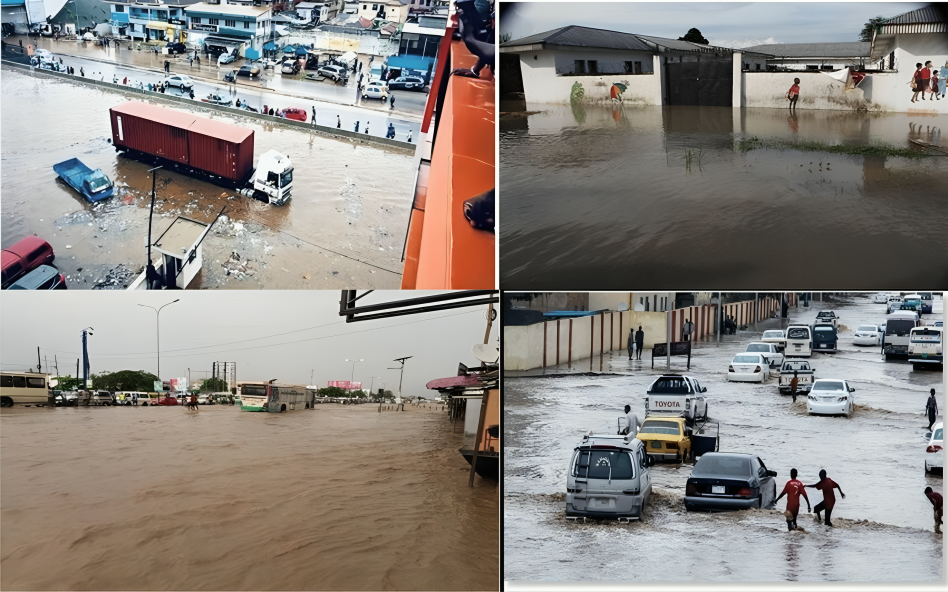In the aftermath of the recent devastating floods that wreaked havoc on parts of Accra, Deputy Presidential Spokesperson, Shamima Muslim, has laid bare the causes of the disaster and detailed the government’s urgent and long-range strategies to combat the recurring menace.
Muslim did not mince words as she pinpointed a cocktail of structural deficiencies and irresponsible citizen behavior as the primary triggers of the calamity which hit major localities such as Ofankor Highway, Shiashie, Spintex, and Palace Mall on Sunday, May 18.
“The floods in these areas were a direct result of depressed roads and choked drains, mostly due to silt buildup,” Muslim candidly stated during a post-flood assessment.
She lambasted the surreptitious acts of some community members who dump solid waste into drains, especially during the rainy season, under the false impression that floodwaters will effortlessly sweep the garbage away. “But where does it all end up? That’s the burning question – where to?” she challenged.
Muslim stressed that relying solely on regulations and enforcement won’t suffice without a shift in societal conduct. She underscored the significance of proactive civic responsibility even before the rains come pouring down.
Encroachment and haphazard waste disposal aggravate the problem, with areas like Lakeside and Ashiyie bearing the brunt of floods due to illegal construction activities near vital waterways. Muslim pointed out that drains in these vicinities, albeit recently constructed, failed to perform their purpose due to reckless dumping of solid waste.
Underscoring the urgency of the situation, Muslim disclosed that President John Dramani Mahama’s administration has launched a swift engagement to tackle the crisis head-on. A presidential task force has conducted aerial surveys to identify vulnerable zones and is collaborating with engineers to fashion suitable remedies.
“They have rolled up their sleeves to tackle the issue head-on,” she insisted, revealing that desilting operations will kick off soon in high-risk areas like the Odo River.
Emphasizing the importance of the Greater Accra Resilience and Integrated Development (GARID) Project, championed by the World Bank, Muslim highlighted the project’s mission to fortify flood risk management and waste disposal practices in the region.
With a critical eye on the future, Muslim referenced President Mahama’s recent remarks about proposing the relocation of Ghana’s capital as a strategic move to decongest the city and ease urban pressures.
As the specter of flooding looms over Ghana’s urban centers, President Mahama’s government seems poised to confront the crisis through a combination of infrastructural endeavors, regulatory muscle, and a cultural push for environmental stewardship.
Mahama Vows To Tackle Accra Flooding Crisis

